As a personal trainer, I have many men come to me wanting a workout and diet program that will help them build muscle. While this is an admirable goal, I try to remind them that their diet will benefit more than just their physique, and factors like prostate health should be taken into consideration. In fact, according to the NIH, “Experts estimate that benign prostatic hyperplasia (BPH) affects 5% to 6% of men ages 40 to 64 and 29% to 33% of those ages 65 and older. BPH is the most common prostate problem in men older than age 50. BPH rarely causes symptoms in men younger than age 40.”
Whether you are over the age of 50 or not, including the best foods for prostate health in your weekly meal plan can be beneficial. Keep reading to learn more.
Fatty fish
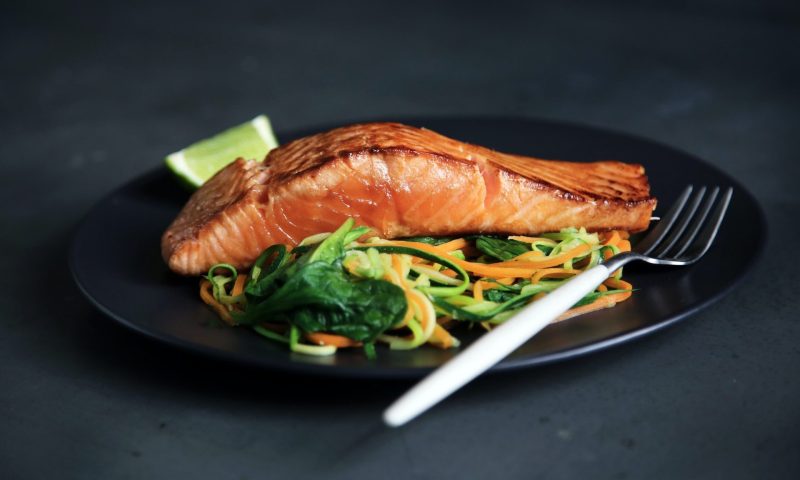
Fatty fish, such as salmon, tuna, sardines, herring, trout, and mackerel, contain omega-3 fatty acids, which have been shown to reduce inflammation and can slow the progression of prostate enlargement. There is even some evidence pointing to the ability of omega-3 fatty acids to reduce tumor size in cases of prostate cancer.
Tomatoes
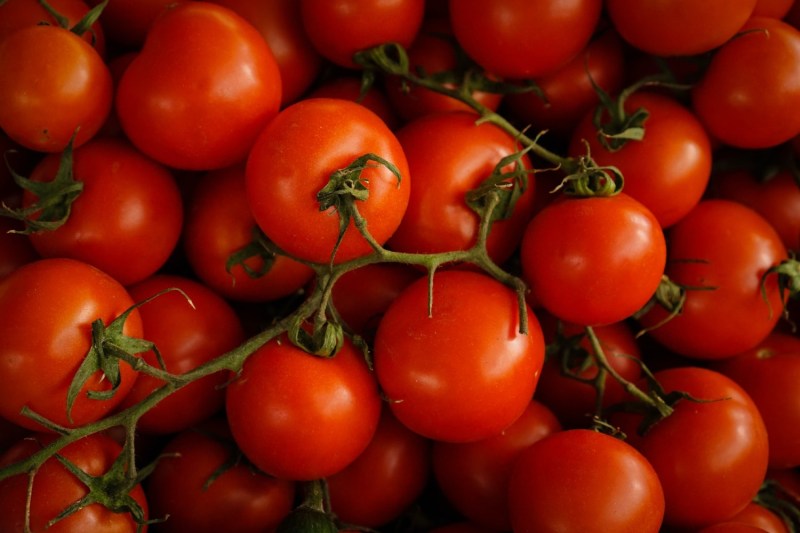
Tomatoes are one of the best sources of lycopene, a carotenoid that protects your cells against oxidative damage from free radicals. Lycopene has been found to slow the progression of benign prostatic hyperplasia and lower levels of prostate-specific antigen (PSA), a marker of prostatic inflammation and prostate cancer risk. The absorption of lycopene is enhanced by healthy fats, so pair your tomato consumption with avocado, nuts, fatty fish, or olive oil to maximize the benefits.
Other good dietary sources of lycopene include watermelon, pink grapefruit, papaya, and guava. Tomatoes also contain selenium, another mineral associated with improved prostate health and function. One cup of tomatoes has 55mg (61% RDI) of vitamin C.
Soy
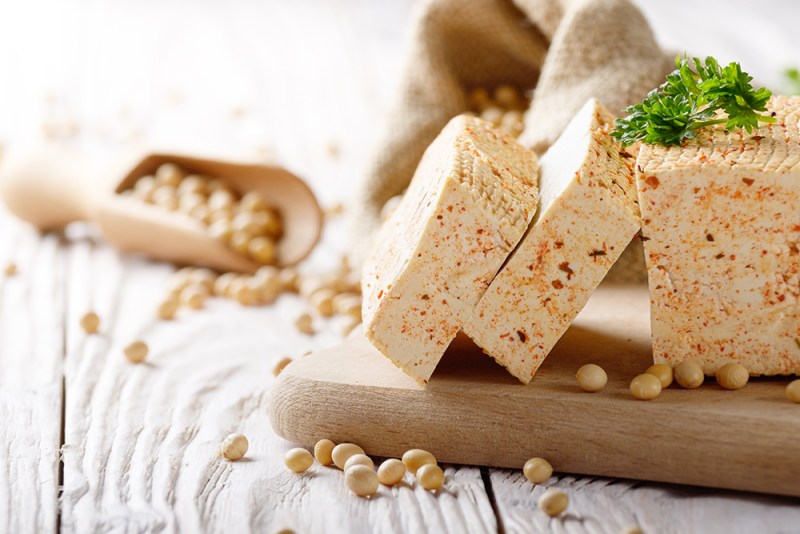
Soy gets a bad rap sometimes because of the phytoestrogens it contains, but these very compounds also make it particularly protective against prostate problems, as they confer antioxidant properties and may help regulate hormone levels and healthy cell turnover. For example, isoflavones, a type of phytoestrogen, have been shown to potentially lower the risk of prostate cancer by 20%. These compounds are also found in some legumes, such as beans and lentils. Consider swapping an animal protein for tofu, tempeh, or legumes to support prostate health.
Berries

All berries are loaded with antioxidants, including anthocyanins, which have been shown to have anti-inflammatory and anti-cancer effects. Berries may also help improve overall cardiovascular health, which is important for prostate health.
Broccoli
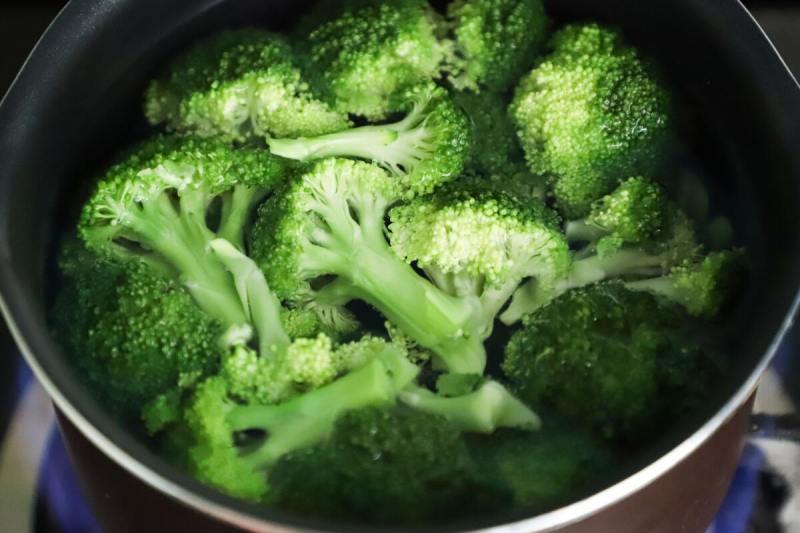
Broccoli is often touted as the king when it comes to the healthiest vegetables. Along with other cruciferous vegetables like kale, Brussels sprouts, and cauliflower, broccoli is packed with vitamin C. One cup of broccoli provides 81 mg of vitamin C, and because broccoli is a nutrient-dense, low-calorie food, every 200-calorie portion provides an incredible 525 mg or 583% of the RDI of vitamin C. Brussels sprouts are slightly higher in calories but also packed with vitamin C.
Each cup of Brussels sprouts contains 107% of the recommended daily intake of vitamin C. Cruciferous vegetables are also good sources of fiber, folate, and E and K. Research shows that compounds in these vegetables, known as glucosinolates, can reduce the risk of prostate cancer, along with the brain, blood, bone, colon, gastric, liver, lung, oral, and pancreatic cancers, among others. Cruciferous vegetables can be enjoyed steamed, roasted, grilled, chopped in salads, or seasoned lightly and then cooked in an air fryer.
Tumeric

This spice contains curcumin, a potent anti-inflammatory agent that can help reduce inflammation throughout the body, potentially slowing down cancer growth. Curcumin may help reduce the risk of prostate health issues and may also help improve urinary flow in men with BPH.
Green tea
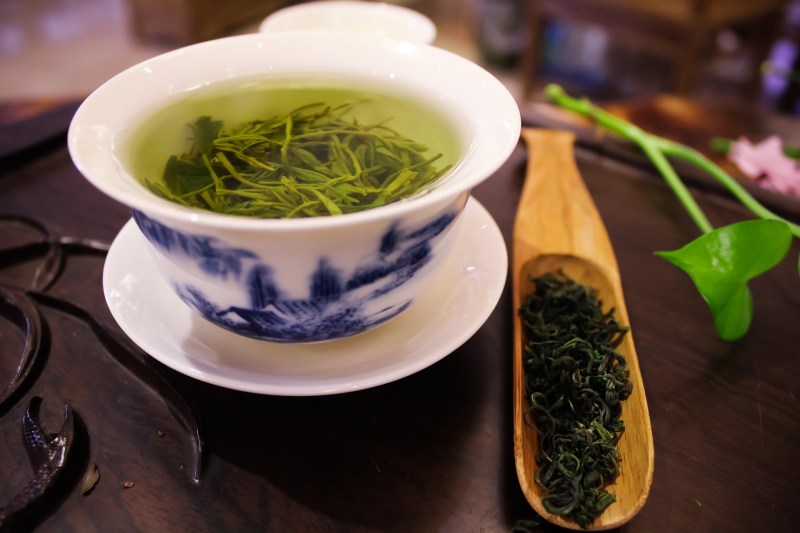
Green tea is often called a superfood, with evidence demonstrating numerous health benefits ranging from improving memory and increasing metabolism to reducing the risk of cancer. In fact, research has found an inverse relationship between green tea consumption and prostate cancer risk, such that cancer risk drops in a linear fashion for every cup of green tea consumed per day.
Many of the benefits of green tea are due to the antioxidants and polyphenols it contains, which reduce inflammation in the body and support the immune system and cellular health. For example, epigallocatechin-3-gallate (EGCG), a particularly potent anti-inflammatory compound in green tea, helps protect the fatty acids in your cells from oxidative damage and inhibits the production of pro-inflammatory cytokines. Consider swapping your morning cup of coffee for green tea or adding a cup in the mid-morning for a boost of energy.
Nuts and seeds
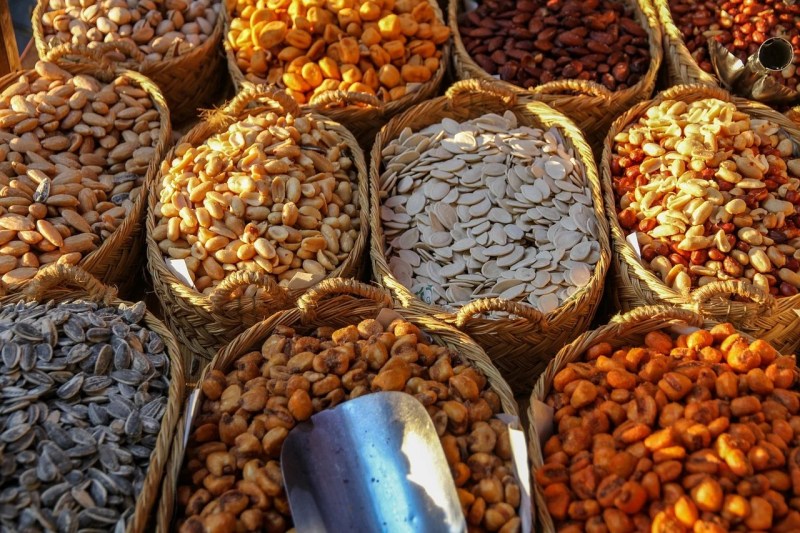
Nuts and seeds can be beneficial for prostate health due to their healthy, anti-inflammatory fats, minerals, and vitamins. Pumpkin seeds, squash seeds, sesame seeds, Brazil nuts, walnuts, and almonds are considered to be the most potent prostate protectors, mainly due to their high zinc content.
Zinc has been found to reduce the risk of prostate enlargement as well as prostate cancer. Seeds and nuts, such as walnuts, also have vitamin E, an antioxidant that can reduce free radical damage, reduce inflammation, and improve immune function. Try adding seeds and nuts to yogurt, breakfast cereal, salads, or homemade protein balls.
Bell peppers
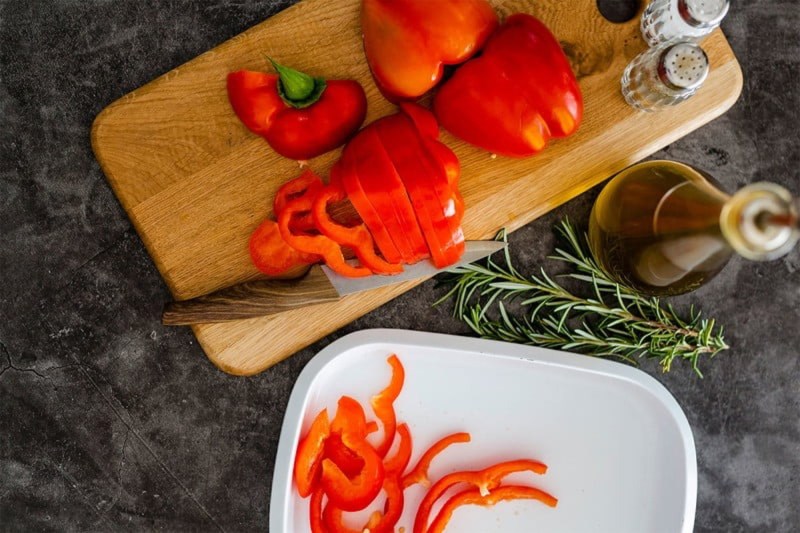
Bell peppers are one of the richest sources of vitamin C, an antioxidant that can help scavenge free radicals and prevent oxidative damage. It also supports the immune system and reduces systemic inflammation. Red, yellow, and orange peppers are particularly high in vitamin C; plus, they contain vitamin A, beta-carotene, and lycopene, which help regulate inflammation by suppressing pro-inflammatory T-helper cells and suppressing the expression of genes for different inflammatory cytokines.
Asian mushrooms
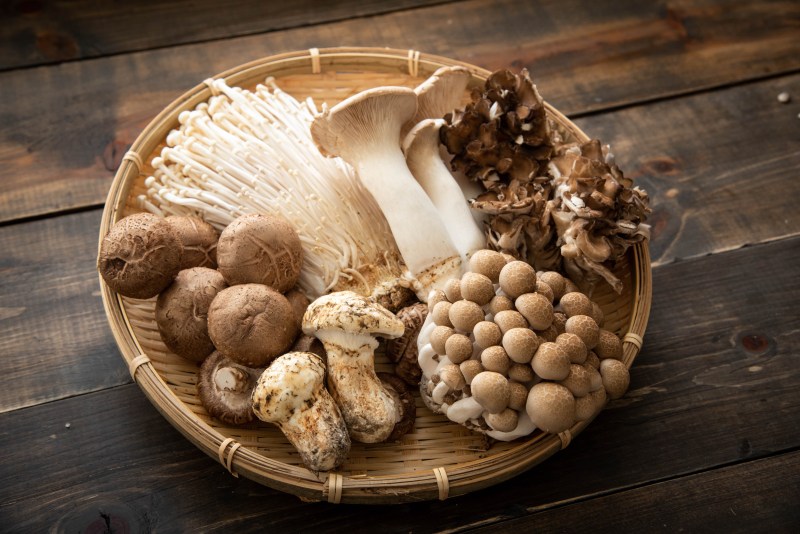
Studies have found that the consumption of Asian mushrooms, such as shiitakes, is inversely associated with prostate cancer risk. Try sautéing mushrooms in stir-fries, adding them raw to salads, or roasting or grilling them to bring out their earthy flavor.
Avocados
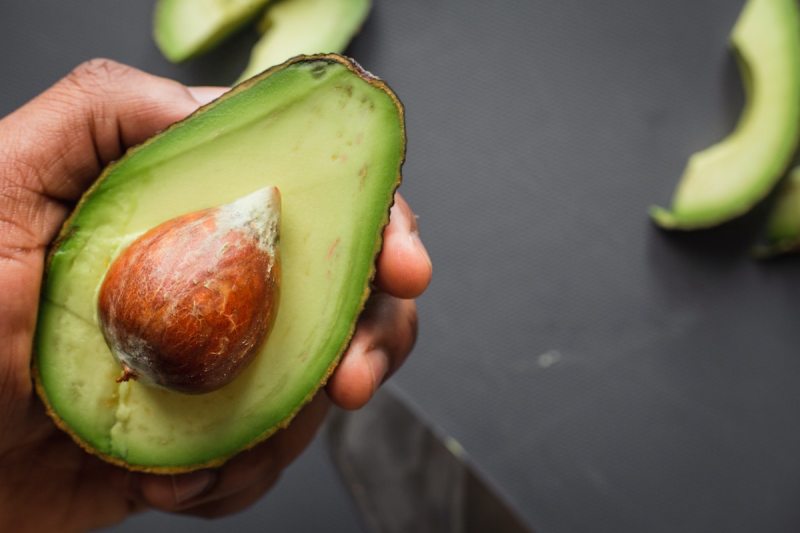
If you’re an avocado toast lover or love avocado on your salads or burgers, you’re in luck. This nutritious fruit is packed with anti-inflammatory healthy fats, antioxidant vitamin E, fiber, and beta-sitosterol, a plant sterol said to minimize the urinary symptoms associated with benign prostatic hyperplasia. Avocados are filling and versatile, useful in everything from savory dishes to healthy desserts.
Pomegranate juice
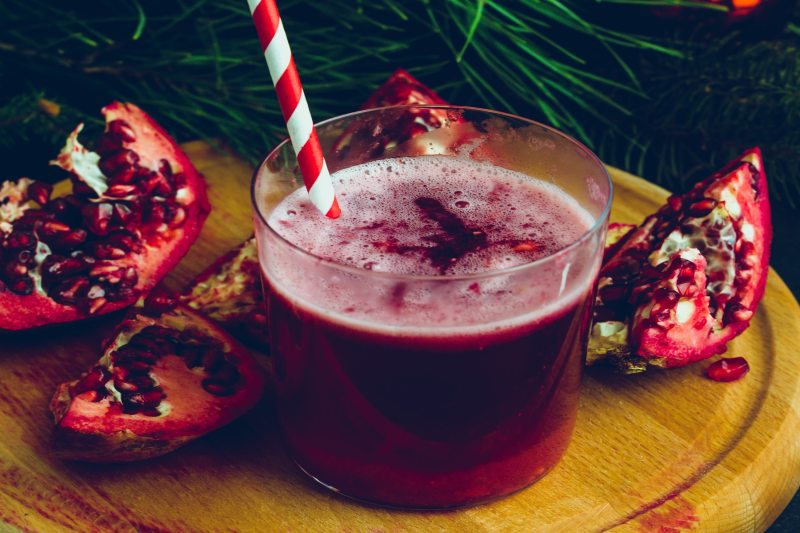
Pomegranates have jewel-like seeds packed with antioxidant-rich juice. There is even some evidence to suggest pomegranate juice may inhibit tumor growth in prostate cancer.
Example meal plan designed for prostate health

If you are looking for a simple meal plan that will help minimize any risks to your prostate health, the following is a great example of what you can follow.
- Breakfast: Tomato and spinach omelet – eggs, fresh spinach, diced tomatoes, olive oil, and whole-grain toast
- Snack 1: Berry and flaxseed yogurt – Greek yogurt, blueberries, and ground flaxseeds
- Lunch: Grilled salmon with quinoa salad – grilled salmon, cooked quinoa, chopped kale, cherry tomatoes, and a lemon vinaigrette
- Snack 2: Nuts and green tea – almonds, walnuts, and unsweetened green tea
- Dinner: Roasted broccoli and lentil soup – cooked lentils, roasted broccoli, garlic, onion, vegetable broth, turmeric, and black pepper
Foods to avoid if you want to eat for proper prostate health
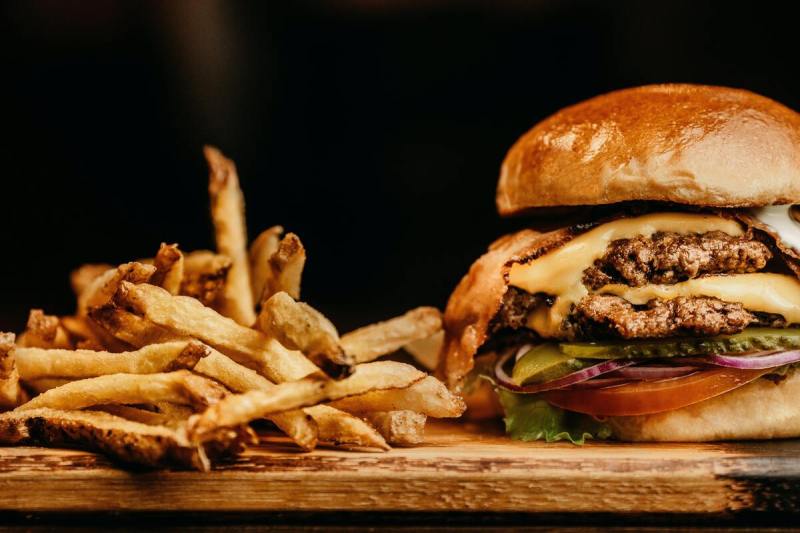
Now that you know what you should eat, what should you avoid? Regularly consuming unhealthy foods can make any symptoms you may be experiencing worse and lead to other issues. So, in addition to adding the aforementioned foods to your grocery list, try to keep the following foods to a minimum.
- Sugary foods
- Red meat and processed meats
- High-fat dairy products
- Alcohol
- Foods high in sodium
- Fried foods




